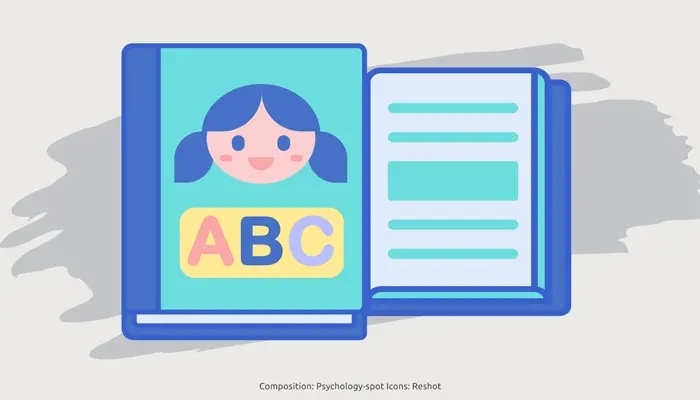
Most of the parents read to their children. It is an excellent habit that enhances child development, although neuroscientists warn that we would be wasting a good opportunity, because, apparently, we are not doing it correctly.
In fact, most of the parents read to their children at night before going to sleep, to quickly promote sleep. So the tale before bed turns into a routine whose main objective is to relax the child. Other parents are a little more careful and worry that reading improves the language skills of children or consolidate certain values.
But neuroscientists say that Reading books to children, without taking a break or promote reflection, it’s like watching a movie. In practice, children are drawn into the story and are so eager to get to the end to find out how it ends that lose the most important details, or at least let slip the greatest opportunities for growth.
The positive part is that parents can correct this “error” by simply changing the way they read.
Reading changes the brain of the child
A study by Princeton University psychologists found that when we read a novel we develop a more empathetic attitude and better understand the mental states of others. This is because the novels capture our attention and, through the story, involve us inside thoughts and emotions of the characters and help us to put ourselves in the place of the others.
Another study conducted at Emory University has gone a step further finding that the effects of reading in the brain are not ephemeral, but maintained over time. According to these neuroscientists, reading a good novel is like receiving a gentle but powerful “massage” directly into the brain. And the most interesting thing is that these changes persist even five days after having finished reading, indicating that the effects of reading doesn’t end when we close the book.
Obviously, most of the children’s books are not as deep and rich in details, but in general all children’s stories can be used to build empathy and develop the decision-making process. In fact, a study conducted at the Hospital of Cincinnati with children between 3 and 5 years old, revealed that the brains of children whose parents used to read, showed increased activity in response to reading in the areas related to narrative understanding and visual images.
The secret because reading further enhances the learning and development of the infant brain is very simple: read pausing.
Emphasizing the conflicts improves learning
According to neuroscientists, the key because children take the maximum advantage of most books is that parents are able to highlight the conflicts that arise in the story, just the opposite of what adults usually do.
In fact, often we overlook quickly the conflicts that arise in the books, we read quickly to get to the end, which is typically, “and they lived happily ever after”. But really, we should just take a break when in the story surge conflictual situations and ask the child what he/her would do in place of the protagonists of the story.
In this regard, different studies have shown that when we are learning and have to make a decision, we remember better. What takes place in these cases is that the brain starts to function as a whole. When the child listens to the story that his/her parents are Reading assume a passive role. However, when he/she actively participates and makes decisions about the course of the events, will be activated different brain areas that will further facilitate learning.
And it is precisely this moment of reflection that enables a more holistic learning, which leaves deep imprints in the brain of the child. In fact, often the most interesting part of the story occurs just when parents close the book and the child reflect on what has heard. Therefore it is said that the best books are those that promote thinking when the story is over.
A time for the story and another one for learning
It ‘important that parents and teachers understand that the objective of reading is not simply that children learn new words or develop a passion for reading, but generating the most intense experiences from the intellectual point of view that favor the development of the cognitive functions.
Moreover, this form of reading also stimulates empathy, by the way that motivates the child to take the place of the characters, “good” or “bad”, helping to develop the “Theory of Mind.” Also, be faced with a moral dilemma is also a powerful way to instill values.
Of course, you don’t need to pause to think every time you read them a story, because it is also important that children enjoy the magic of the tale and be carried by events. However, it is important that parents and teachers are aware of the fact that fast reading doesn’t allow to get the most out of those special books that contain life lessons waiting to be discovered.
Sources:
Huttón, J. S. et. Al. (2015) Home Reading Environment and Brain Activation in Preschool Children Listening to Stories. Pediatrics; 136(3).
Berns, G. S. et. Al. (2013) Short- and Long-Term Effects of a Novel on Connectivity in the Brain. Brain Connectivity; 3(6): 590-600.
Comer, D. et. Al. (2013) Reading Literary Fiction Improves Theory of Mind. Science; 342(6156): 377-380.
Mar, R. A; Oatley, K. & Peterson, J. B. (2009) Exploring the link between reading fiction and empathy: Ruling out individual differences and examining outcomes.Communications; 34: 407-428.




Twende says
I found this very interesting. I have five grandchildren and have pased on this blog to their arents. I know it will generate a powerful discussion.
Keep up the good work.
Jennifer Delgado says
Thank you Twende, if it generates a discussion is good. And sure I'll keep up with this blog, even if I have to apologize for the many grammar errors since we're not native english speaking.
Thanks a lot again for reading us
Jennifer